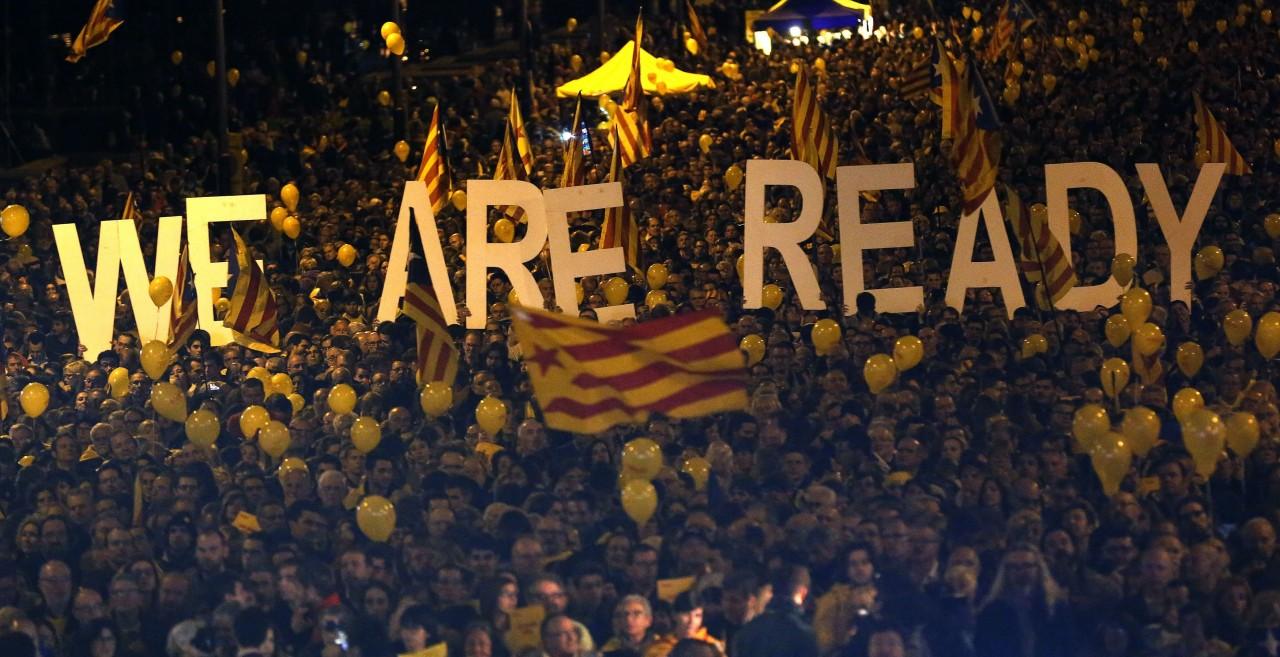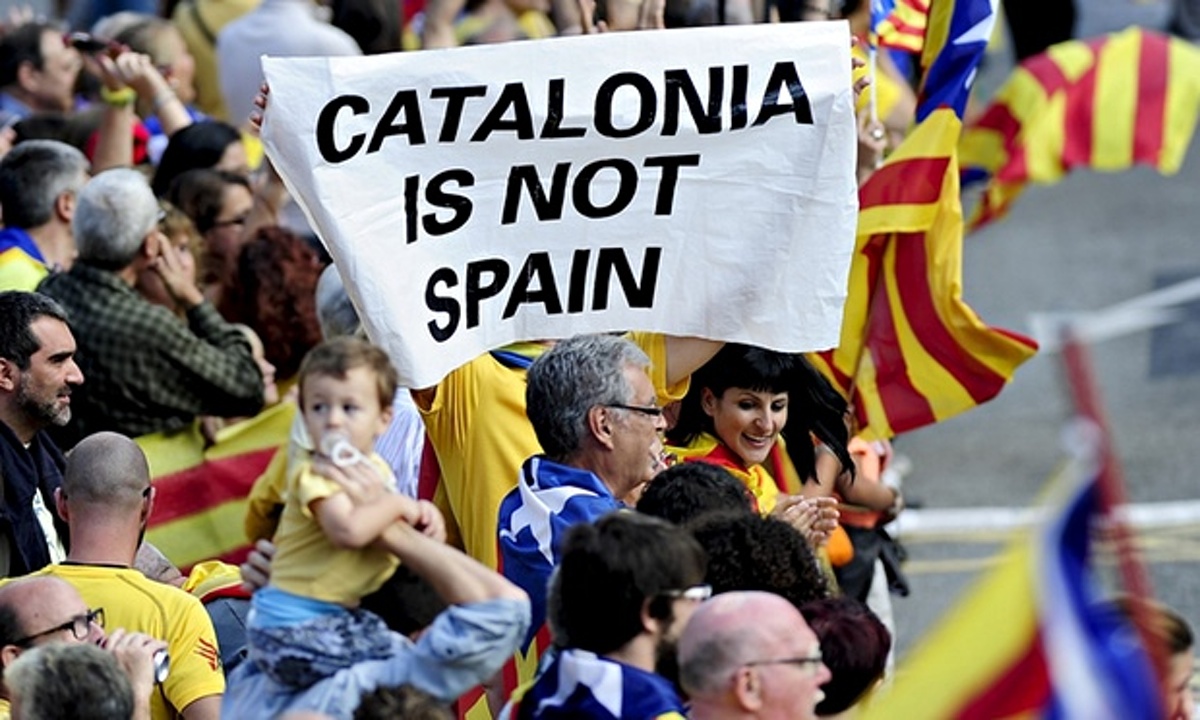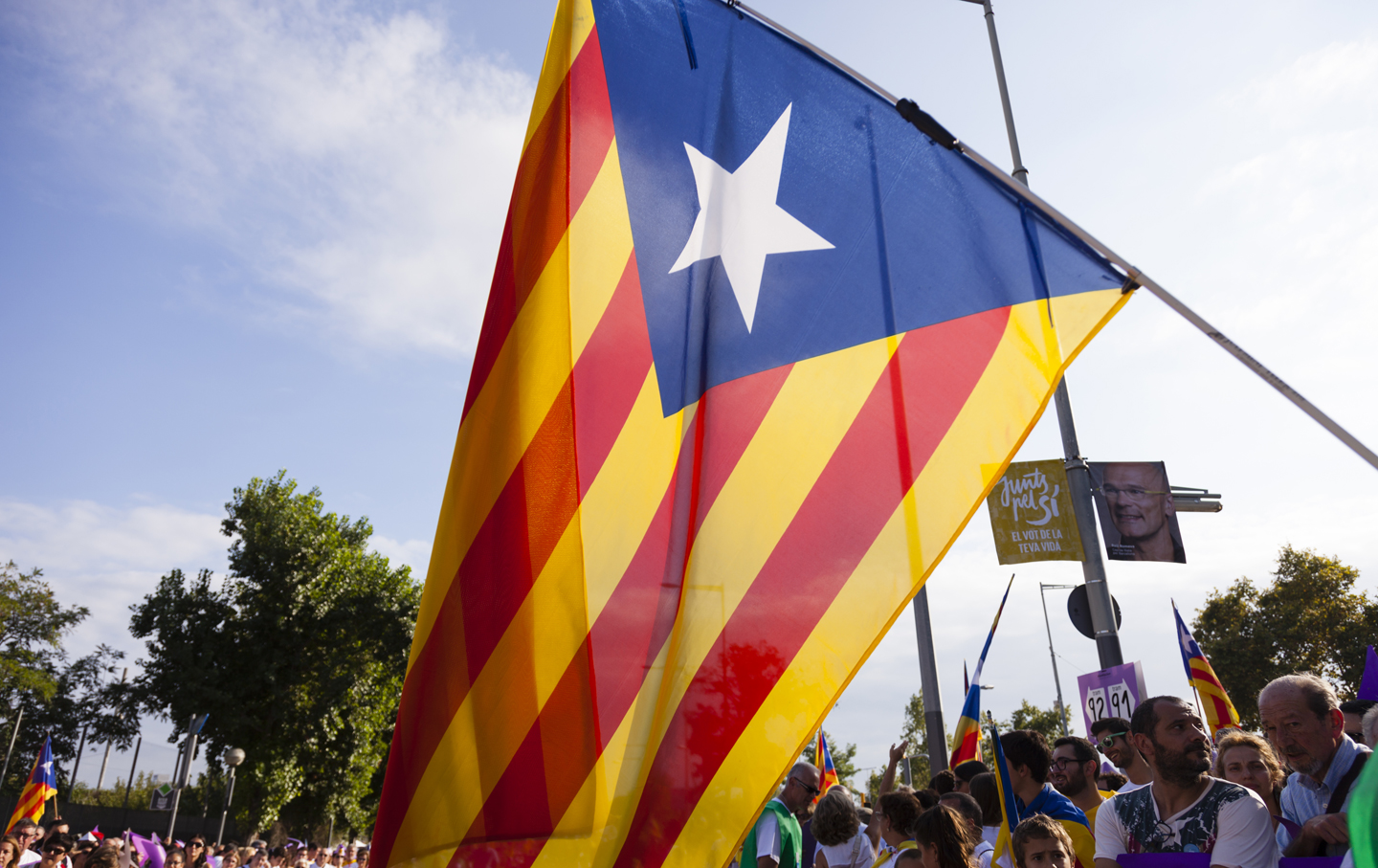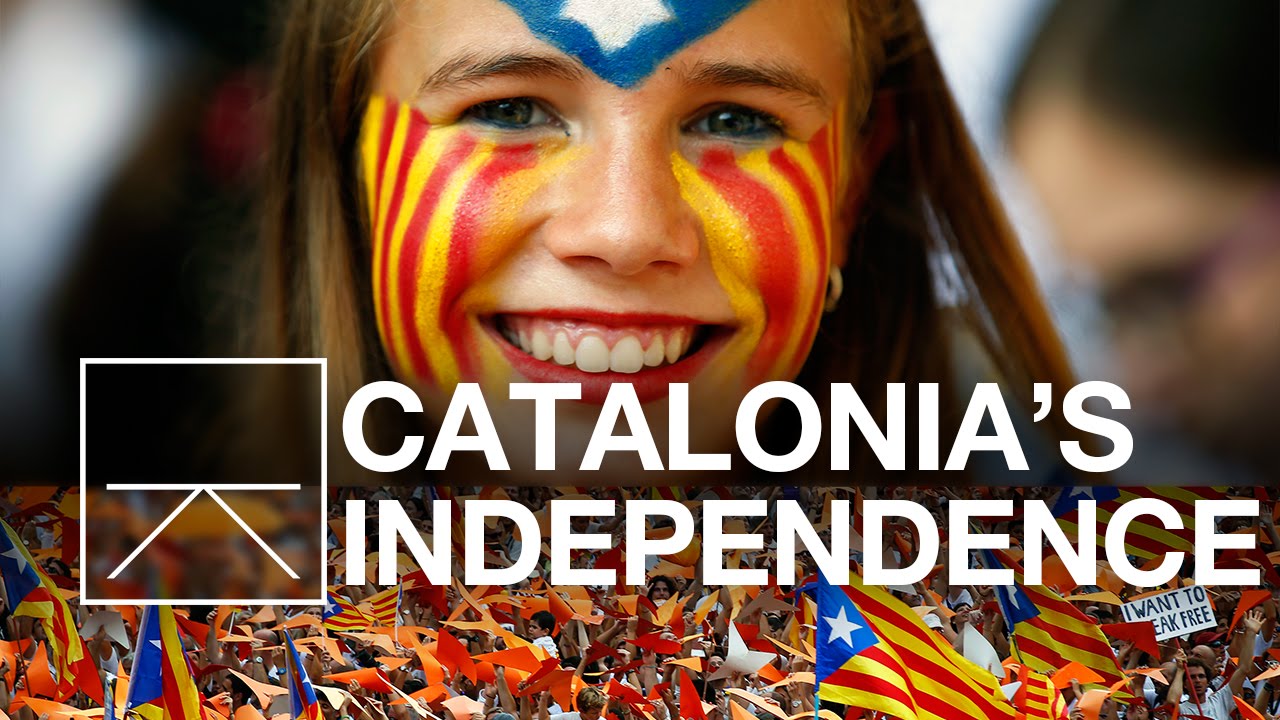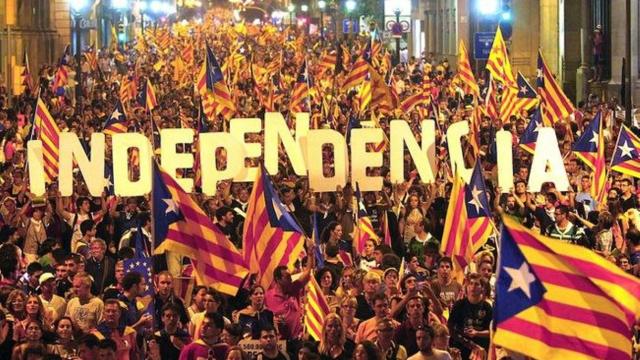
This is the first article in a two-part series looking at the changes transforming Spain's politics ahead of the Dec. 20 national elections. The second article appears Friday.
“It is far more difficult to reshape and reclaim power in larger states like Germany, U.K., France and even Spain — these are key pieces of the capitalist system and dominated by the European institutions,” says Quim Arrufat, a former Member of Parliament from the Catalonian independence and anti-capitalist party known as CUP, or Candidatura d'Unitat Popular (Popular Unity Candidacy). “Change is far easier to obtain in a smaller society, say a few million. So places like Portugal, Greece, Ireland, Catalonia, the Netherlands, or Denmark, these could show another way is possible.”
I met Arrufat recently in the Catalonian Parliament, where plans are now underway to formally break with Spain. CUP, in combination with the larger coalition Junts pel Sí, obtained a majority in September elections, which were held as a de-facto independence referendum for Spain's northeastern region.
Since then, Catalonia has announced firm plans to leave Spain by 2017, fueling intense discussions ahead of Spain's general election on Dec. 20. CUP’s anti-capitalist and feminist stance, along with its core role in the region's Parliament, have made it arguably the most influential radical party in Europe.
Independence Movements from Edinburgh to Barcelona
Independence movements create space to reimagine a progressive, greener, more egalitarian future, as voters saw last year in Scotland. In both Scotland and Catalonia, the promise of sovereignty provides, among other things, an escape route from state-centered capitalism.
“We do not want to build our own state because we love states – we need to escape a state that is playing against us as a nation, as citizens and local citizens,” says Arrufat. “Spain is cutting social expenses, reducing labor rights and recentralizing the state. The right wing Spanish nationalists are again growing strong. So we must escape. At a minimum we need to create a new state that gives us liberty.”
CUP’s radical platform is rooted in processes based on direct democracy, where major decisions are referred to the party base. The party is formed of 150 local assemblies that feed into territorial councils. CUP also has elected political councils and national secretariats, where members can only serve two terms. The party allows its MPs to serve only one term.
All major CUP decisions are made either by local assemblies, or in national assemblies held annually or whenever necessary. The CUP is also connected to social movements; for example, no representative, including the MPs, can earn more than 2.5 times the lowest paid worker’s salary. The party redistributes the rest of its proceeds to social movements, which are decided upon by all its members.
CUP and the Kurds
This model has similarities to the democratic confederalist revolution of Rojava in western Kurdistan. Arrufat says political ties have been growing between the CUP movement and the Kurds in Rojava and Turkey during the last three or four years. For instance, feminist groups in both nations have established links, and their respective social movements have converge and collaborated.
“It is not only because we find them cool or just for solidarity. We have similar pasts," adds Arrufat. "We are both nations without a state and both live in states that do not love us.”
Arrufat draws some key similarities between the groups and their vision of their future, namely due to the core ideals they value: feminism, social ecology, living in symbiosis with nature, communalism, direct democracy, self-reliance and autonomy.
He also points out, however, that the Catalonia and Rojava situations clearly differ. For one, Rojava has emerged since the Syrian state withdrew from northern Syria — and the Kurds are [the main force fighting](ISIS http://www.theguardian.com/commentisfree/2015/nov/18/turkey-cut-islamic-...) on the ground.
CUP Rising
Catalonia has a long history of radical and anarchist movements. CUP traces its recent surge to popular angers developing out of the financial crash of 2008. Along with two other people, Arrufat was elected in 2012 during CUP's first bid in national elections. The party also grew from 25 local councillors to 100 during that time — a result of the energy fueled by the 15M/Indignado protests of Mayt 2011, when millions occupied squares across Spain, followed by strikes and mass demonstrations that were met with state repression.
The mobilizations have decreased since 2012, Arrufat admits, with the exception of pro-independence protests in Catalonia.
“Those organizing these mobilizations thought they need to enter the institutions, not solely protest against them," he says, but "I think this will bring frustration, as you cannot change much through institutions, in the Spanish state at least.”
Pessimistic about "real change" coming to Spain immediately, Arrufat says he thinks between two-thirds and three-quarters of citizens will vote for parties pushing more of the same on Dec. 20. But he sees hope for Catalonia.
“If we can combine the social protest with the fight for true democracy and sovereignty, we have a majority here,” he says.
Forming a new state means creating a new constitution, a process that is currently engaging social movements working together across Catalonia. The constitutional process is perhaps one of the strongest ways that anti-capitalist and independence movements have shown their ability to coalesce.
Independence would offer immediate opportunities to people throughout the region, says Arrufat. Among those: retaining the welfare state and increasing Catalan employment in the cooperative sector beyond its current 150,000.
“In democratic terms, we could stop being subjects and be citizens — applying the best global examples such as public consultations, referenda, with spaces of deliberation to build a republic based on direct democracy,” he says.
In terms of social rights, Arrufat suggests Catalonia could aim to become the most developed welfare state anywhere, including providing guaranteed basic income. The public could also control key sectors such as banking, energy and finance, with an economy in which the responsibilities are divided among three core elements — public, private and cooperatives — to meet basic and local needs.
“Again people can change things," adds Arrufat. Though this, he says, in "an idea that is forbidden under capitalism.”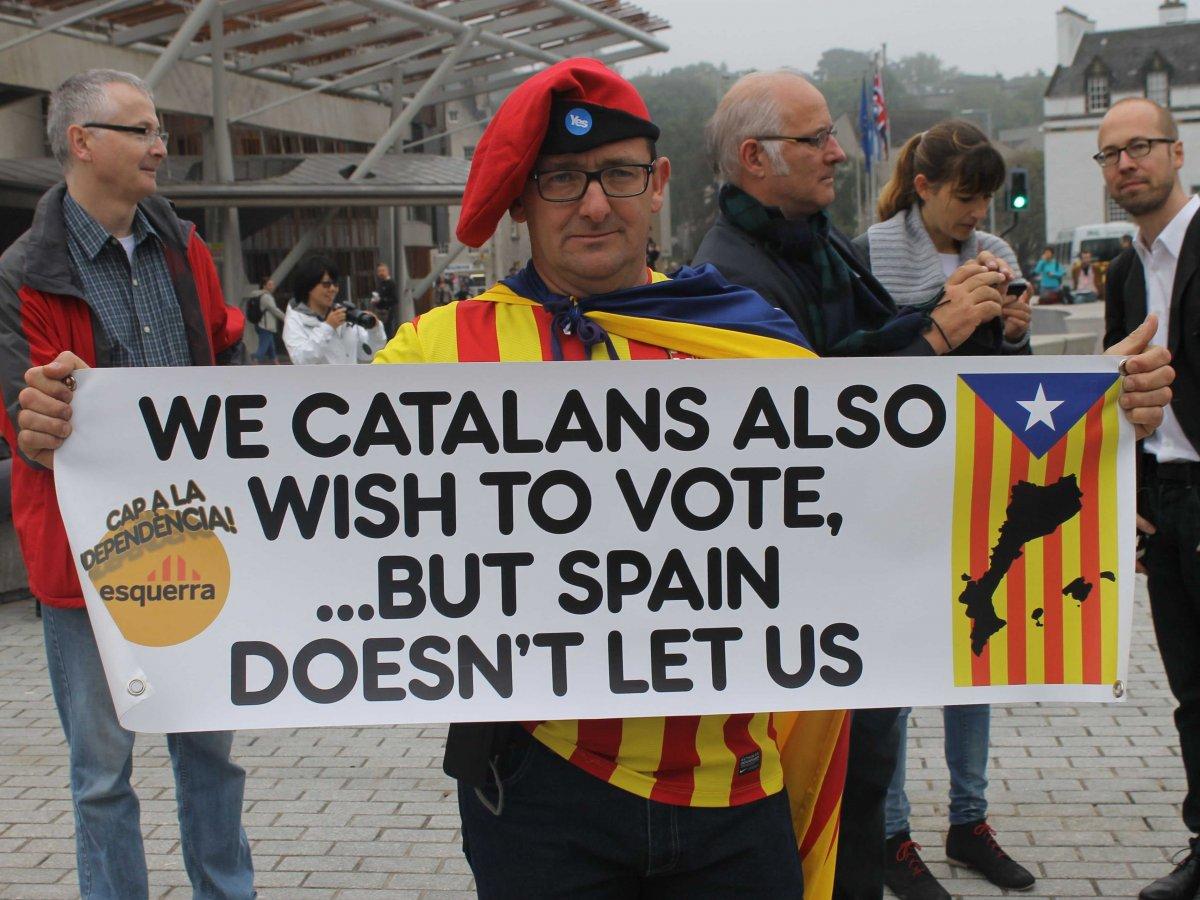
3 WAYS TO SHOW YOUR SUPPORT
- Log in to post comments

